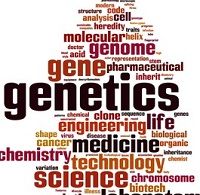Article
Linking Gene Variants and Colitis
Author(s):
Rare structural variants in genes could be contributing to the pathogenesis of ulcerative colitis.

Rare structural variants in genes could be contributing to the pathogenesis of ulcerative colitis (UC).
The findings are in a study published in BMC Medical Genetics on April 1, 2016 conducted by Hamid Reza Saadati of the Clinical Molecular Biology Department at Christian-Albrechts University of Kiel, in Germany, and colleagues.
The authors described the aim of the study as being “to interrogate the presence of disease-relevant rare copy number variants” related to UC.
There were 1121 patients from Germany with UC in the study, along with 1,770 healthy controls. The researchers' primary aim was to identify rare variants in the UC patients which were absent or underrepresented in controls.
The researchers were looking for rare copy number variations (CNVs) and were able to perform a genome-wide scan.
“After follow-up genotyping in four independent case control samples we identified three rare CNVs, one deletion and two duplications as overrepresented in UC patients, compared to the controls,” the researchers report.
They were also able to verify that the three are true positive CNVs.
“All three relevant CNVs could technically be validated by independent methods and were followed-up in independent sample sets,” they said.
This was a multi-step case control analysis, which, the researchers say, “introduced rare structural variants with a potential contribution to the risk of UC.”
They add, “additional follow up studies in larger disease cohorts as well as functional experimental assays are needed to conclusively verify the disease relevance of these three loci.”
However, this study may be helpful in expanding the knowledge regarding the genetic etiology of this and other complex diseases.





